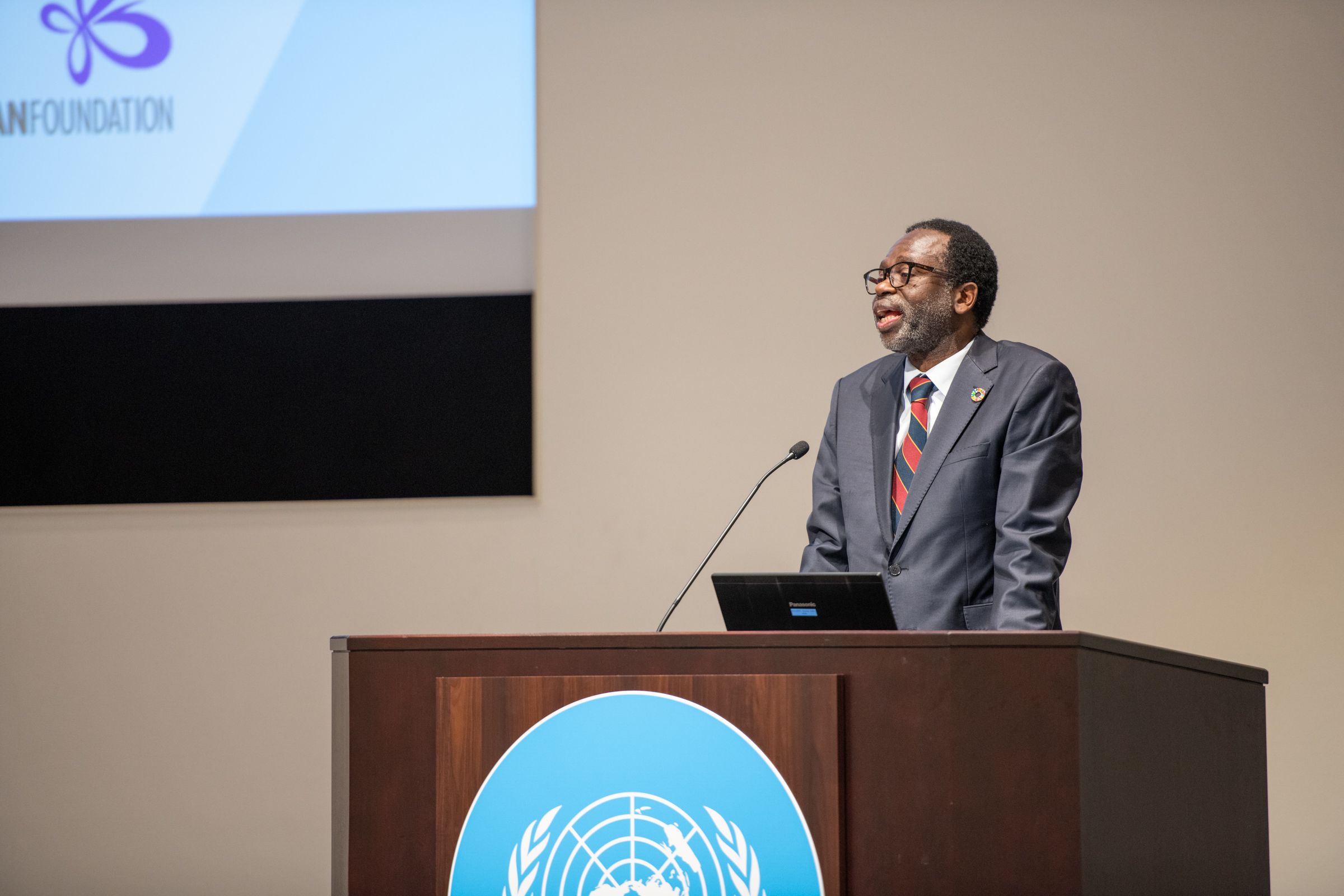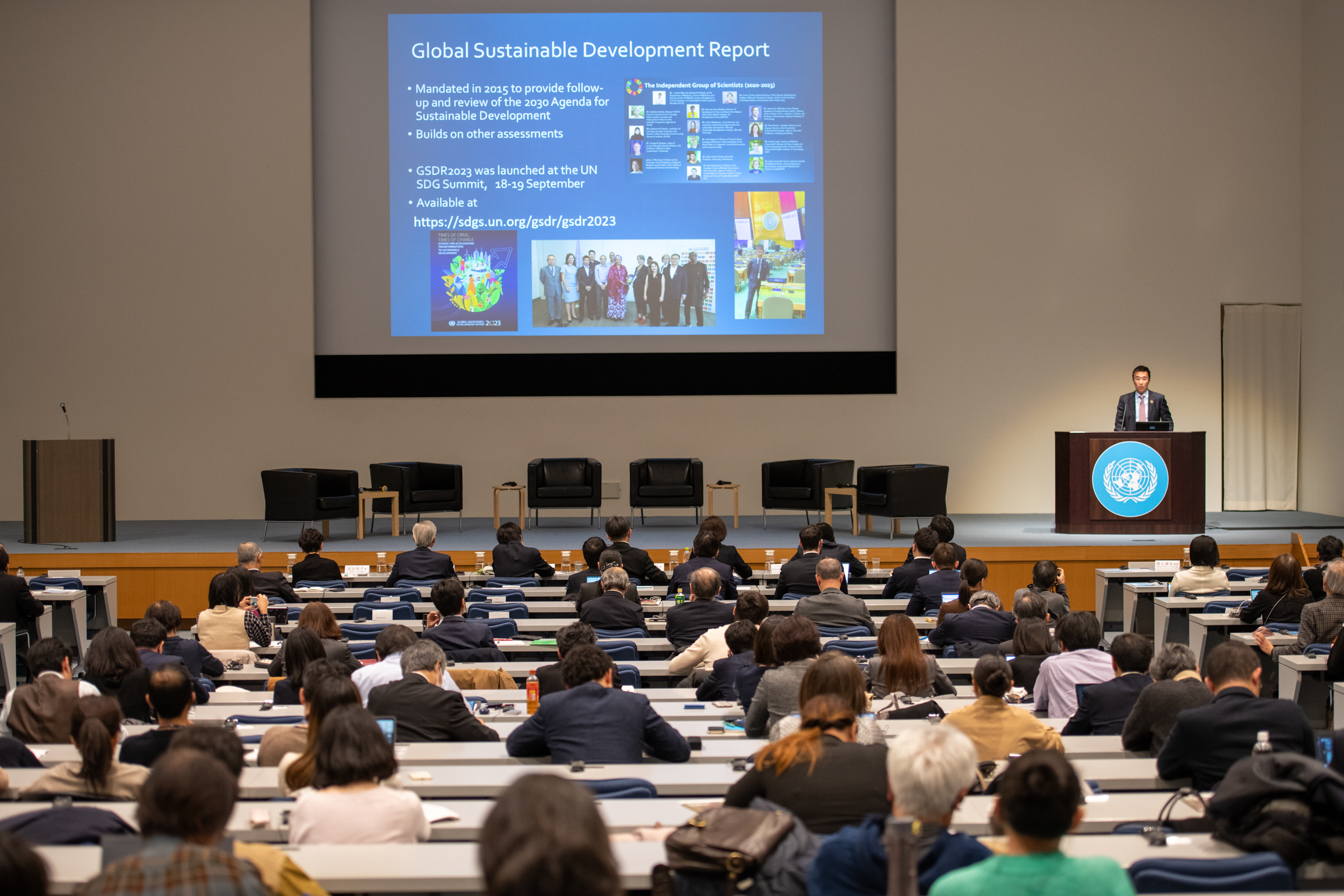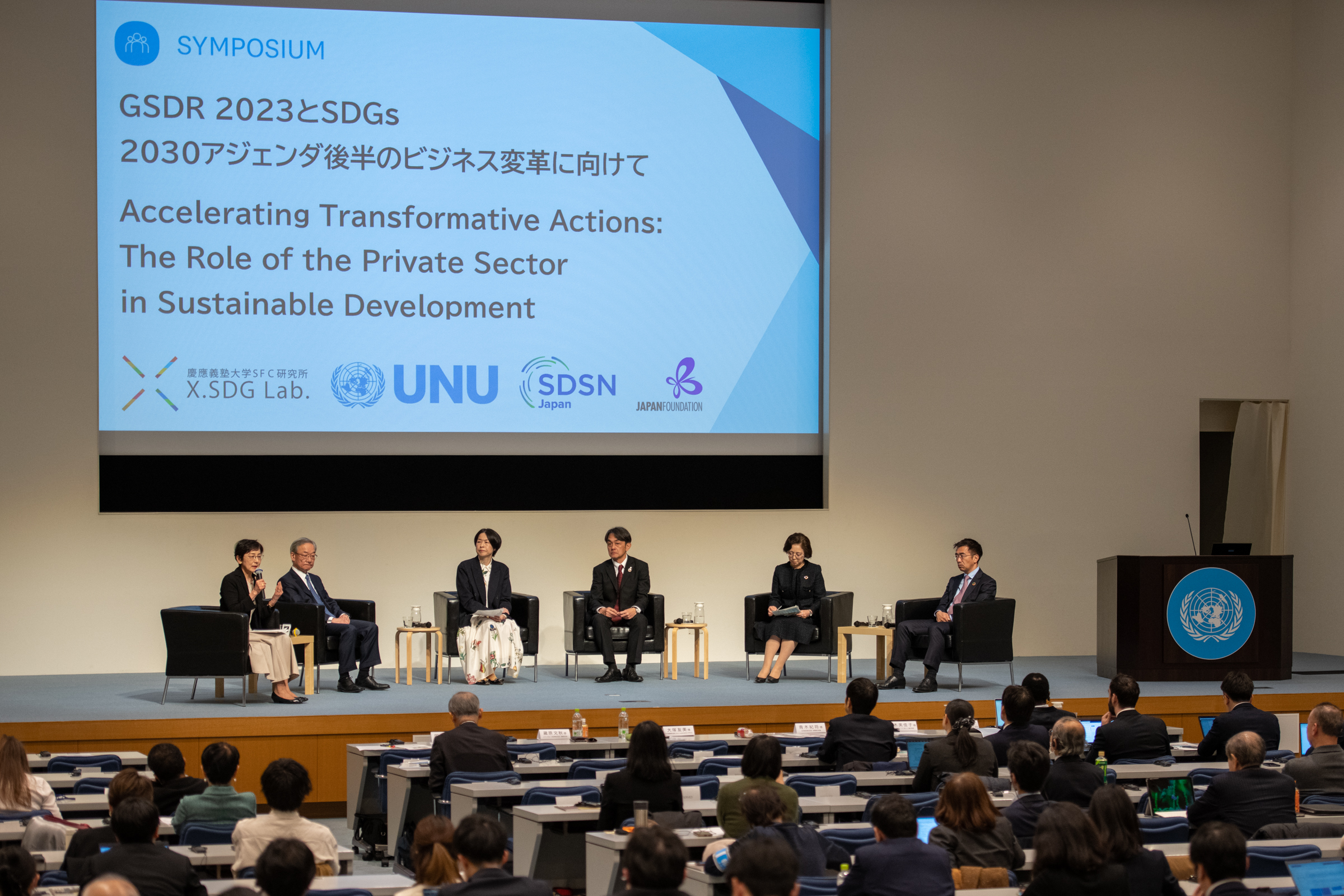

March 1st, 2024
On March 1st, 2024, Keio University SFC Research Institute xSDG Lab and the United Nations University, with the support of the Japan Foundation, and the Sustainable Development Solutions Network Japan, co-hosted a symposium titled GSDR 2023: "Accelerating Transformative Actions: The Role of the Private Sector in Sustainable Development."
The symposium commenced with keynote speeches delivered by Tshilidzi Marwala, Rector of the United Nations University, and Kanie Norichika, professor at Keio University Graduate School of Media and Governance.

In his keynote speech entitled "Sustainable Development and Artificial Intelligence (AI)," Rector Tshilidzi Marwala introduced the United Nations' previous endeavors related to AI and underscored the significance of AI in achieving the SDGs. He emphasized the role and contribution of IT technology, noting that a United Nations report released last year revealed that only 15% of countries are currently on track to achieve the SDGs when using globally evaluable indicators, highlighting the pressing need for further efforts. He asserted that science and technology, particularly AI, are poised to play pivotal roles in accelerating and transforming global progress. Conversely, he addressed the issue of "data poverty" in developing nations, as outlined in UNESCO's "Guidelines for the Utilization of Generative AI in Education and Research," stressing the importance of ensuring equitable distribution of benefits across society. Furthermore, he underscored the crucial role of the private sector, including businesses, in deploying AI and science and technology to effect societal change.

Professor Norichika Kanie, delivered a keynote lecture titled "Seeking Game Changers in the Second Half - Call to Transformative Actions by GSDR," wherein he discussed the United Nations Sustainable Development Report 2023 (GSDR 2023), which he co-authored. He delineated the current challenges, attributing significant delays in SDG progress to the triple crises of the coronavirus pandemic, conflicts, and climate change. He also introduced the "S-Curve" model as a framework for driving the requisite changes to achieve the SDGs, identifying various entry points such as the economy, food systems, energy systems, urban and peri-urban systems, human wellbeing and capabilities, and the global environmental commons. Leveraging governance, finance and economy, individual and collective action, science and technology, and capacity building are pivotal to this endeavor. He also discussed the recent revision of domestic SDG implementation guidelines and civil society's corresponding movements, advocating for disruptive game changers to challenge the status quo.
The symposium's second half featured panel discussions involving business leaders from various fields, including:
Moderator:
Ms. Hiroko Kuniya (Independent Journalist)
Panelists:
Mr. Noriyuki Aoki (Managing Executive Officer, Japan Airlines Co., Ltd.)
Ms. Yumi Otsuka (Chief Sustainability Officer, Toyota Motor Corporation)
Mr. Fumiaki Kurahara (Chairman, Citigroup Global Markets Japan Inc.)
Ms. Mikako Suzuki (Corporate Officer, Ricoh Co., Ltd.)

Each panelist presented their company's initiatives and ideas before engaging in discussions led by Kuniya on challenges and insights gleaned from advancing change initiatives.
During the discussions, panelists were queried on the evolving landscape as companies address SDGs and ESG. Ms. Mikako Suzuki highlighted Ricoh Co., Ltd.'s early commitment to environmental management, which facilitated its early adoption of ESG and SDGs. She emphasized market shifts in Europe that now evaluate such perspectives in bidding processes and stressed the importance of gender equality. Noriyuki Aoki shared Japan Airlines Co., Ltd.'s formulation of a medium-term plan integrating ESG and SDGs perspectives, spurred by the pandemic's reaffirmation of the company's societal role. Yumi Otsuka from Toyota Motor Corporation affirmed the alignment of SDGs and ESG with the company's direction, committing to further institutional reforms. Fumiaki Kurahara from Citigroup Securities Co., Ltd. discussed market and societal changes, including the rise of "stakeholder capitalism," and reiterated finance's role in innovation and its associated risks. Professor Kanie, after evaluating these efforts and comparing them with international contexts, proposed further acceleration by identifying social issues as business opportunities and addressing them accordingly.
Following the panel discussions, President Tshilidzi Marwala reiterated the funding gap concerning SDGs exacerbated by the pandemic and stressed the pivotal role of game changers within the value chain. He emphasized the imperative for continued innovation to drive progress forward.